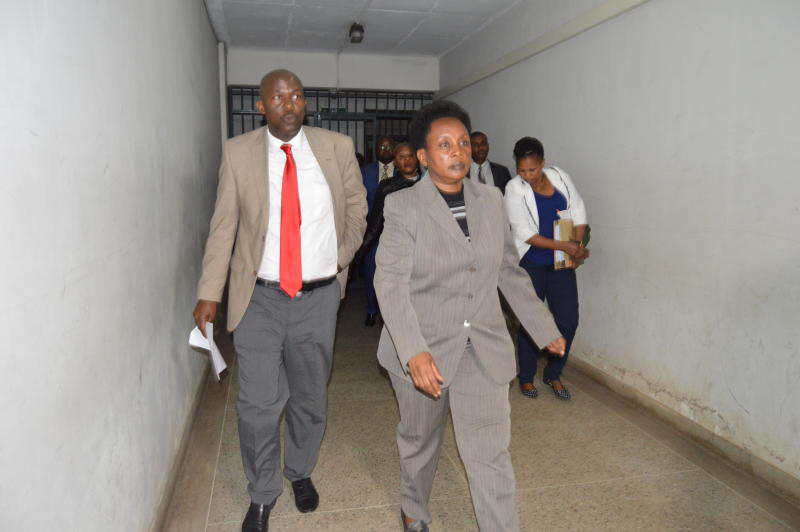×
The Standard e-Paper
Stay Informed, Even Offline

Deputy Chief Justice Philomena Mwilu at Milimanni Law Courts basement. She is accompanied by one of her lawyers Okongo Omogeni. The DCJ is facing corruption and forgery charges. [George Njunge,Standard]
Lawyer James Orengo, who is appearing for Deputy Justice Philomena Mbete Mwilu, is urging Chief Magistrate Lawrence Mugambi not to require the DCJ to a plea in respect of her abuse of office, corruption and forgery case.